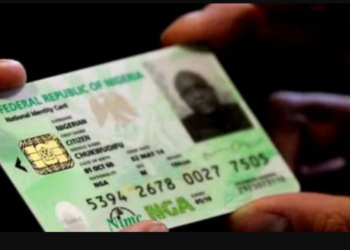The Nigerian Communications Commission (NCC) has refuted claims on the impending mass disconnection of telephone subscribers over the National Identity Numbers (NIN), describing such as unfounded.
This follows speculations from different publications in both the print and electronic media on the ongoing linkage of SIM registration records with the NIN.
READ: Telcos seek engagement from NCC, CBN on USSD dispute
This clarification is contained in a statement that was issued by the NCC Director, Public Affairs, Dr Ikechukwu Adinde, late on Wednesday, January 6, 2021, in Abuja.
What the NCC Director for Public Affairs is saying
Adinde in his statement said:
- ‘’The attention of the Nigerian Communications Commission (NCC) has been drawn to the numerous publications in both print and electronic media regarding the unfounded fears of mass disconnection of telephone subscribers as a result of the ongoing linkage of SIM Registration Records with the National Identity Number (NIN).It is, therefore, necessary for the commission to issue this clarification in order to allay the fears of subscribers and the general public. Most of these publications are based on the erroneous assumption that for every network or SIM connection, there is one unique human subscriber.
READ: Don’t process drivers’ licenses without NIN from Monday, FG orders FRSC
- However, with the advent of social media and App-driven digital environment, network subscription went beyond human subscribers to include machines like PoS, Routers, Wi-Fi devices, electricity meters, CCTV, tracking devices etc.’’
Going further, Adinde pointed out that a recent survey conducted in Nigeria showed that there were approximately 4 to 5 SIMs to every human subscriber. He said:
- “This explains the basis of allowing the linkage of up to seven SIMs to one unique NIN in the recently launched Federal Government Portal. Thus, if there are 43 million Nigerians with NINs, this could account for about 172 million SIMs already linked to NINs.
READ: FG orders removal of N20 NIN retrieval charge across all networks
- “It is very important to emphasise that the current exercise of linking NIN to SIMs is for the common good of all Nigerians, as it has far-reaching benefits. Apart from enhancing our general safety, this will help in such vital exercises like national budgeting, policy planning, social intervention programmes and many more.’’
READ: 13 new space stations get landing permit from NCC
What you should know
- It can be recalled that ever since the Federal Government directed all telecom operators to block all phone lines that do not register on their networks with a valid National Identification Number, the exercise has been riddled with a lot of controversies and misinformation.
- The Nigerian Identity Management Commission (NIMC) had earlier denied reported claims of breach of its database by hackers.
READ: NERC orders DisCos to increase electricity tariffs, effective January 1, 2021
- While struggling to attend to a massive turnout of crowd across their offices, which they are not prepared for, the agency has had to deal with allegations of extortion of applicants by its staff.
- The Minister of Communication and Digital Economy, Dr Isa Pantami, had said that the Federal Government would continue to review the exercise in the light of experiences, to ensure its smooth implementation.
@NgComCommission. PRESS STATEMENT
"CLARIFICATION ON THE UNFOUNDED FEARS OF MASS DISCONNECTION OF TELEPHONE SUBSCRIBERS"
@DrIsaPantami @aliyuaziz @FMoCDENigeria @UwaSuleiman pic.twitter.com/9COjQbSMGM— NIMC (@nimc_ng) January 7, 2021


















